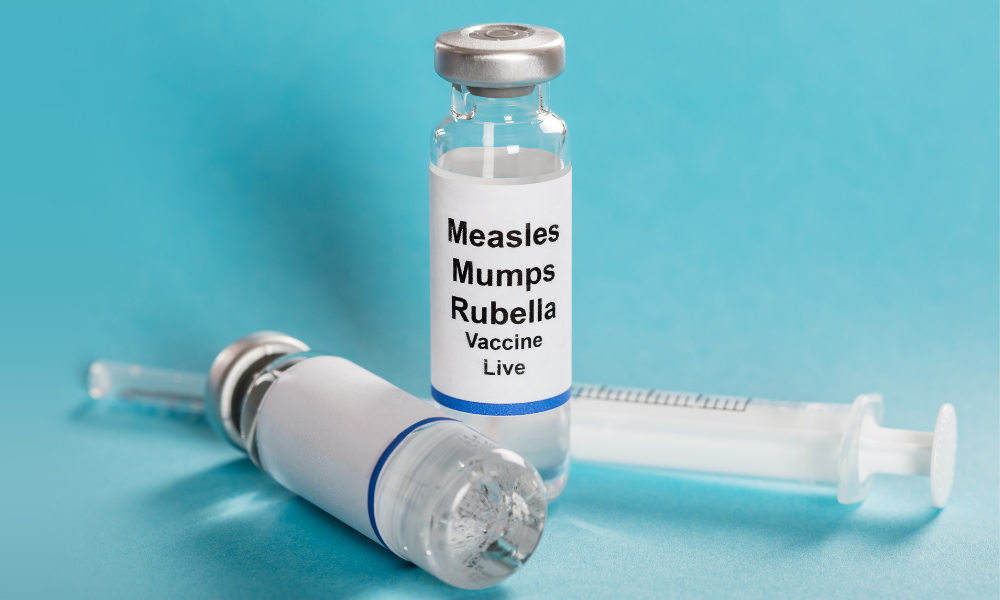Rubella is a mild illness caused by a viral infection that primarily occurs in childhood but can also affect adults. Symptoms may begin with a mild fever, runny nose, sore throat, swollen lymph nodes and progress to a pink rash which usually disappears within 3 – 5 days. Up to 50% of rubella illnesses are so mild you may not even know you have rubella. Rubella is a respiratory infection that is mildly contagious and spread from person-to-person through coughing and sneezing. Women infected with rubella during the first three months of pregnancy are at higher risk for miscarriage and of giving birth to a baby with congenital rubella syndrome (CRS) and birth defects. Rubella is exceedingly rare and infectious disease experts concluded that rubella has been eliminated in Canada.

For more information: https://www.nvic.org/vaccines-and-diseases/Rubella
[53] https://www.nvic.org/disease-vaccine/rubella/quick-facts
[54] Vaccine Adverse Events Reporting System – https://digital.ahrq.gov/sites/default/files/docs/publication/r18hs017045-lazarus-final-report-2011.pdf
MMR (measles, mumps, rubella)
Product: MMR II (Merck)
Product Monograph: https://www.merck.ca/en/wp-content/uploads/sites/20/2021/04/MMR_II-PM_E.pdf (29 pages)
Patient Information sheet: https://www.merck.ca/en/wp-content/uploads/sites/20/2021/04/MMR_II-CI_E.pdf
Manufacturer website: https://www.merck.ca/en/vaccines-2/
Product: Priorix (GSK)
Product Monograph: https://ca.gsk.com/media/6254/priorix.pdf (23 pages)
Patient Information sheet:
Manufacturer website: https://ca.gsk.com/en-ca/products
MMRV (measles, mumps, rubella, varicella)
Product: Priorix-Tetra (GSK)
Product Monograph: https://ca.gsk.com/media/6253/priorix-tetra.pdf (37 pages)
Patient Information sheet:
Manufacturer website: https://ca.gsk.com/en-ca/products/
Product: ProQuad (Merck)
Product Monograph: https://www.merck.ca/en/wp-content/uploads/sites/20/2021/04/PROQUAD-PM_E.pdf (45 pages)
Patient Information sheet: https://www.merck.ca/en/wp-content/uploads/sites/20/2021/04/PROQUAD-CI_E.pdf
Manufacturer website: https://www.merck.ca/en/vaccines-2/